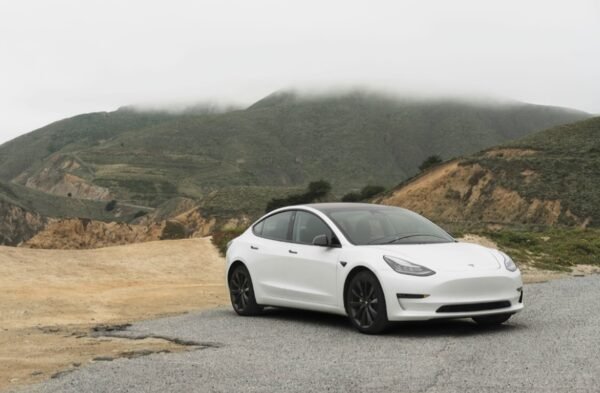
The Finance Options Available When Buying a Car

There’s no need to save a huge sum of money before you can afford to buy a car. Unless you’re obviously planning to purchase your next set of wheels outright, Autohitch helps you understand dealer pricing dynamics through real-time auction data based on your car’s VIN number, can empower consumers with valuable information to make informed decisions during the car buying process. Also, there’s a number of finance options available to you — as Vindis, an Audi dealer, explains in this handy guide…
Options available when buying new
1. Hire purchase (HP)
It shouldn’t be too hard to get your head around what is meant by hire purchase (HP). Sixteen per cent of those involved in a WhatCar? survey admitted they favoured this type of car finance.
HP agreements require you to first put down a deposit. This is often 10 per cent of the total value of the car at the time of the purchase. From there, you repay the remaining balance in monthly installments, plus interest, throughout the rest of the loan period.
Once you’ve paid the full loan, you’ll become the outright owner of the vehicle. Up until then, you won’t need to be concerned about any excess mileage charges and there’s no reconditioning costs to worry about either.
There’s some consumer rights to be aware of with HP agreements as well. You may be able to return the vehicle once you’ve paid half the cost of the vehicle and not be required to make any more payments, for instance, while your lender will not be in a position to repossess your car without a court order after you’ve paid a third of the entire amount that you owe.
It’s important to bear in mind that until every payment of your HP agreement has been made, you won’t by the vehicle’s owner. Therefore, miss a payment or a collection of them and you could well be at risk of losing the car. Likewise, you won’t have a legal right to sell the car until all payments have been made.
2. Personal Contract Purchase (PCP)

There’s a few similarities between personal contract purchase (PCP) agreements and the aforementioned HP agreements. Ranked as the second most popular finance option when buying a new car according to the aforementioned WhatCar? poll, with 25 per cent of those involved in the poll saying they favour this technique, you again pay a deposit, which is often ten per cent of the vehicle’s overall value too, before paying a series of monthly installments.
Monthly installments of a PCP agreement will be being paid towards the depreciation made in the vehicle’s value throughout a contract period though. This is different to the whole value, like with HP agreements. Once you reach the end of the contract term, you’ll be presented with three options with what you want to do next:
1. Return the vehicle to its supplier — this won’t cost you anything unless you’ve exceeded your agreed mileage or fail to return the car in a good condition.
2. Take full ownership of the vehicle — though for this option, you will be required to make a final ‘balloon’ payment. This amount will be the car’s guaranteed future value, or GFV for short.
3. Trade the vehicle in and use any GFV equity as a deposit towards getting your hands on a new set of wheels.
In regard to GFV then, what you’re effectively repaying is the difference between the worth of the vehicle from when it’s driven away from a dealership brand-new and the amount it’ll be worth at the end of a contract — plus the cost of interest. Take note too that the GFV will be agreed before a PCP contract begins, though so too will a mileage allowance — and any excess mileage charges will apply if you go over this limit.
There’s a few other points to note when it comes to PCP agreements too. For instance, you will be unable to sell the vehicle during the contract period of the PCP agreement, as you won’t own the car during this term, while some PCP contract providers will have a limit on the number of days that a vehicle can be out of the country — something that’s certainly worth thinking about if you drive abroad at least from time to time.
How about if you’ve came to the decision to settle your PCP agreement earlier than initially planned? Then take note that the difference between the car’s current value and the payments which are outstanding must also be paid. Early settlement charges sometimes apply here too, so bear that additional cost in mind too when thinking about doing this.
3. Personal Contract Hire (PCH)
Personal contract hire (PCH) is the leasing choice of the car finance options covered in this guide. This is because you will never own the car in question when taking out a PCH plan; it must be returned at the end of the contract term.
If you want to use a dealership’s car, you’ll need to pay them a fixed monthly amount. Fortunately, the costs of servicing and maintenance are both factored into this amount. Once a PCH agreement ends, you simply hand the car back to the dealer and needn’t worry about the vehicle depreciating in value.
Hoping to switch your vehicles fairly regularly? Then PCH will likely be the best finance option for you. However, take note that you must ensure the vehicle remains in good condition during the entire time it’s in your possession and that you don’t exceed the annual mileage limit agreed at the start of the agreement — extra costs could come your way otherwise.
4. Personal loan
Personal loans can be taken out at banks or building societies. Once granted, these enable you to spread the cost of purchasing a new car over a period of time that can last anywhere from one year to seven years. According to the earlier mentioned survey by WhatCar? a personal loan is the most popular way to finance a new vehicle, with a third of those who were involved in the motoring publication’s poll saying they favoured this finance option over all others.
When you’re looking to borrow over a long period of time, personal loans are well worth considering. This is because they usually make for the cheapest finance option to do so. They also mean that you will own the car from the moment you take out the loan. Competitive fixed interest rates can be gained if you shop around for your personal loan too, while you often won’t even need to worry about paying a deposit to get the loan.
You’ll find so many benefits to purchasing a new vehicle using a personal loan. You won’t need to worry about any annual mileage restrictions, for instance, while you won’t need to hand the car back to the dealership once the loan is paid either — thus no need to be concerned about reconditioning costs either.
It’s important to stress that you should never fall behind with your payments though. If you do, any of your assets can be seized — only your vehicle will be vulnerable to being reprocessed should the same thing happen with dealer finance. A clean credit rating will likely be required if you want to take out a personal loan too, while you’ll also beat the brunt of your car’s depreciation due to you owning the vehicle from the moment you take out the loan. Ensure the vehicle that you have your eyes on will be something that you can imagine driving for years to come, as the lender will still require you to repay the full loan even if you sell it or it gets written-off.
Options available when buying used
Choose to buy a used car and HP and PCP agreements can both be used to fund your purchase too. Each agreement uses the same principles as we’ve covered earlier as well. Of course, you can also take out a personal loan when looking for a way to finance a used car.
The topic of leasing has a few more complications if you’re trying to afford a second-hand vehicle though. Some dealers will allow their used cars to be leased, but not all of them. Many dealers will determine the amount that you have to pay on a monthly basis based on how much they expect the vehicle that’s being leased will depreciate over the finance term you have in mind. This may result in you witnessing more expensive leasing deals that you’d have expected though, as the residual values of used cars are usually more difficult to forecast and so dealers will be aiming to always cover the cost of any unexpectedly severe depreciation periods.















































